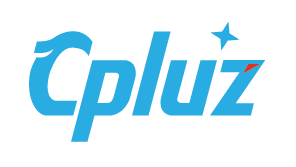Security in Cpanel is a critical aspect for any business or individual who uses the platform for hosting their website or applications. Cpanel provides a range of security features and tools that can help protect your online presence from various threats. However, many users make critical Cpanel security mistakes that leave their sites vulnerable to attacks. In this article, we will discuss 10 common Cpanel security mistakes you’re making right now and how to avoid them.
Cpanel Security Mistakes You Should Avoid
With the increasing number of cyber threats, it’s essential to ensure that your Cpanel is secure and up-to-date. Here are 10 critical Cpanel security mistakes you’re making right now and how to fix them:
1. Weak Passwords
One of the most common Cpanel security mistakes is using weak passwords. A weak password can be easily guessed or cracked by hackers, giving them access to your account and potentially compromising your website. To avoid this, use strong and unique passwords for your Cpanel account and enable two-factor authentication (2FA) whenever possible.
2. Outdated Software
Failing to update your Cpanel software and other applications can leave you vulnerable to security threats. Regularly update your Cpanel software and other applications to ensure that you have the latest security patches and features. You can set up automatic updates in Cpanel to ensure that your software stays up-to-date.
3. Unsecured FTP Accounts
FTP (File Transfer Protocol) accounts provide a way to upload and manage files on your website. However, if your FTP account is not secured, hackers can gain access to your files and compromise your website. To avoid this, disable FTP accounts that are not in use and use secure FTP protocols like SFTP (Secure File Transfer Protocol).
4. Inadequate Backup Policy
Backing up your website regularly is essential to prevent data loss in case of a security breach or other issues. However, many users do not have an adequate backup policy in place. Make sure to set up automatic backups in Cpanel and store them securely offsite.
5. Unsecured Email Accounts
Email accounts can be a weak link in your Cpanel security chain. Hackers can use email accounts to gain access to your website or other sensitive information. To avoid this, use strong passwords for your email accounts and enable 2FA whenever possible.
6. Poor File Permissions
File permissions control who can access and modify files on your website. Poor file permissions can leave your website vulnerable to security threats. Make sure to set up proper file permissions in Cpanel to prevent unauthorized access to your files.
7. Unsecured databases
Databases store sensitive information like login credentials and other data. If your database is not secured, hackers can gain access to this information and compromise your website. To avoid this, use secure authentication methods like SQL authentication and encrypt sensitive data.
8. Unmonitored Server Activity
8. Unmonitored Server Activity
Monitoring server activity is essential to detect and prevent security threats. Many users do not monitor their server activity, which can lead to security breaches. Use Cpanel’s built-in tools like the “Server Status” page to monitor your server activity and detect potential security threats.
9. Inadequate Firewall Configuration
The firewall is a critical security feature in Cpanel that helps block unauthorized access to your website. However, many users do not configure their firewall properly, leaving their website vulnerable to security threats. Make sure to configure your firewall in Cpanel to block unauthorized access to your website.
10. Lack of Security Audits
Regular security audits are essential to identify and fix security vulnerabilities in your Cpanel setup. Many users do not perform regular security audits, which can lead to security breaches. Use Cpanel’s built-in tools like the “Security” page to perform regular security audits and fix any security vulnerabilities.
Conclusion
Cpanel security is a critical aspect of protecting your online presence from various threats. By avoiding the 10 critical Cpanel security mistakes discussed in this article, you can significantly reduce the risk of security breaches and protect your website from unauthorized access. Remember to use strong passwords, update your software regularly, secure your FTP accounts, and monitor your server activity to ensure the security of your Cpanel setup.
Prevent Security Breaches with Cpluz
At Cpluz, we understand the importance of Cpanel security and offer a range of services to help you protect your online presence. Our team of experts can help you set up and configure your Cpanel setup securely, perform regular security audits, and provide 24/7 support to ensure the security of your website. Contact us today to learn more about our Cpanel security services and how we can help you prevent security breaches.
Contact us at info@cpluz.com or visit our website at cpluz.com to learn more about our services and how we can help you protect your online presence.

